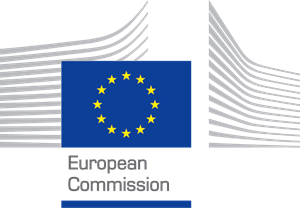Empowering the resilience of energy systems against cyber, privacy, and data attacks.

Project ELECTRON: Resilient and self-healed electrical power nanogrid.
In the era of hyper-connected digital economies, the smart technologies play a vital role in the operation of the Electrical Power and Energy Systems (EPES), transforming it into a new, decentralised model with multiple benefits, such as distributed generation, pervasive control, remote monitoring, and self-healing. However, the growing number of cybersecurity incidents in EPES promotes the need for shielding against a variety of threats, ranging from cyberattacks, dynamic and evolving Advanced Persistent Threats (APTs), and privacy violations, to electricity disturbances and severe human errors caused by lack of relevant training.
The diverse threats that modern EPES are facing require novel and holistic solutions that employ cutting-edge technologies to detect and mitigate threats, while continuously assessing the dynamic EPES environment, ensuring compliance with the latest cybersecurity standards and training the EPES personnel to appropriately respond to cybersecurity incidents and mitigate the human-error factor.
Considering these, ELECTRON aims at delivering a new-generation EPES platform, capable of empowering the resilience of energy systems against cyber, privacy, and data attacks through four main pillars (risk assessment and certification, anomaly detection and prevention, failure mitigation and energy restoration, and addressing internal threats and gaps through AR-VR-based personnel training and certification), while fostering the cyber protection standardisation and certification via three novel authorities, namely the cybersecurity lighthouse, the cybersecurity training and certification authority, and the energy trading centre.
Our main tasks
- Energy community anonymous information sharing
- Proactive islanding using slicing management
- ELECTRON platform development environment setup
- ELECTRON platform continuous integration
- Integration and functional testing
- Large-scale pilot planning
- Implementation of large-scale level pilot demonstrations
- Evaluation analysis and cost-benefit analysis
Partners
ATOS | CHECKWATT | CYBERLENS | DIETHNES PANEPISTIMIO ELLADOS | EIGHT BELLS | ETHNIKO KENTRO EREVNAS KAI TECHNOLOGIKIS ANAPTYXIS | G.E. PUKHOV INSTITUTE FOR MODELINGIN ENERGY ENGINEERING OF THE NATIONAL ACADEMY OF SCIENCES OF UKRAINE | IDENER.AI | INCITES CONSULTING | INDEPENDENT POWER TRANSMISSION OPERATOR | INTEGRATED SOLUTIONS | JOINT-STOCK COMPANY PRYKARPATTYAOBLENERGO | LOGOS RESEARCH AND INNOVATION | NETCOMPANY INTRASOFT | NTNU NORWEIAN UNIVERSITY OF SCIENCE AND TECHNOLOGY | PANEPISTIMIO DYTIKIS MAKEDONIAS | PUBLIC POWER CORPORATION | SCHNEIDER | SIDROCO | TECNALIA | THALES | UBITECH | UNIVERSITY OF CYPRUS
Start date – finish date
10 / 2021 - 09 / 2024

This project has received funding from the European Union’s Horizon 2020 research and innovation programme under grant agreement Nº 101021936

